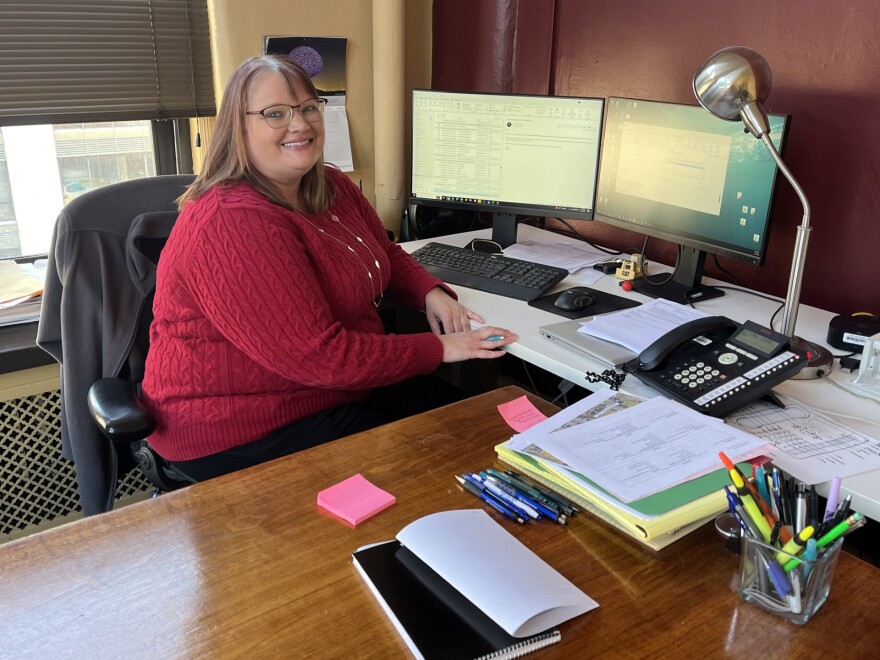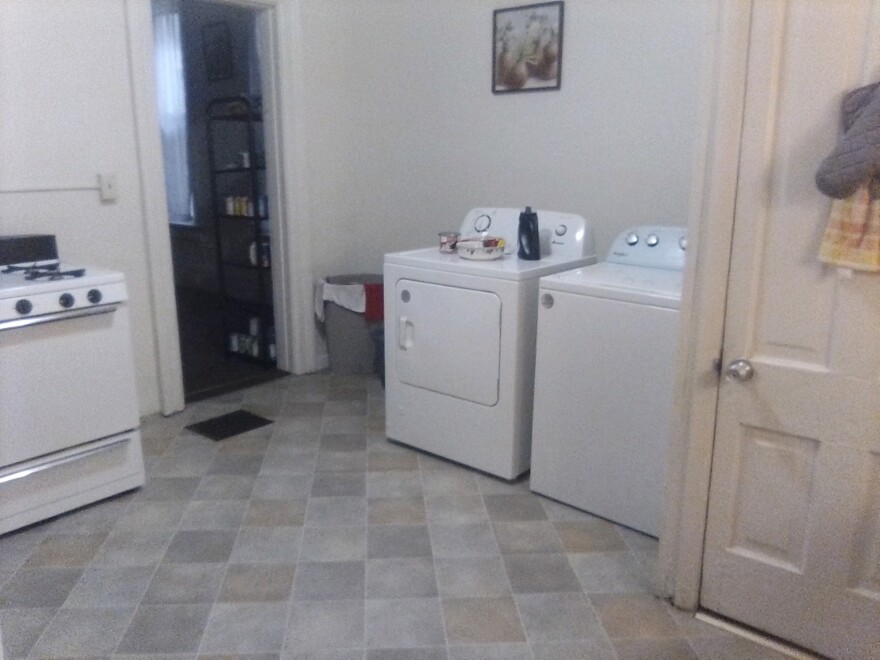Naomi Jordan lived on the streets of East St. Louis for nearly a year, struggling to access housing and grappling with alcohol abuse.
“I didn’t have anywhere to go. I had family there, you know, but I didn’t want to bother them,” she said. “And quite honestly, I didn’t, you know, nobody wants to be bothered with anyone who doesn’t have anywhere to go.”
Jordan eventually found shelter at Peoria’s Dream Center and started turning her life around.
‘I went through a program and I haven’t drank anything since November 4th, 2022, thank the lord, I’ve been sober for over two years now,” she said. “I’ve been in three or four shelters over two years and I’ve been here ever since.”
Some unhoused people, like Jordan, do have a source of steady income, like a fixed Social Security payment or a part-time job. But that's often not enough to overcome housing barriers like security deposits and apartment fees.
But Jordan now lives in a one bed, one bath duplex in Peoria. She's been there for almost a year. She found the home through Peoria's Flexible Rent Assistance Program.
“This program is really a blessing, you know, to those who have income but don’t have anywhere to go,” Jordan said. “If you want housing, this is the program to get with.”
The Flexible Rent Assistance Program is offered by the city's Community Development department.
The COVID-era American Rescue Plan funds the program. Grants and Budget Manager Kathryn Murphy says housing advocates maintain a list of homeless people, couples and families. The office checks if they're eligible for help.

“For people who have income and just need that deposit, first month’s rent, just those additional financials just to get into an apartment,” Murphy said.
She says the most common reason a person on the list, maintained by the organization Home for All Continuum of Care, is found ineligible is they’ve left the Peoria area since being added.
The program also provides up to $5,000 for necessities, things like furniture, transportation and moving equipment. The city purchases these things directly from vendors.
Murphy says the program rarely goes over that threshold, but can in unique situations, like a family of seven who needed more beds for all the kids.
Landlords participating in the program also receive an incentive. The "landlord bonus" is equal to one additional month's rent.
Murphy says the program would be impossible without cultivating local landlord relationships. She estimates 25 have expressed interest in playing a part.
“We have a variety of landlords that have participated with us,” she said. “Whether it was those smaller landlords that just have one or two properties, to larger apartment complexes where we’re working with the property manager to get one or two units in a bigger apartment complex.”
The city support doesn't end after move-in day. Housing Coordinator Nicole Morrow says the office sticks around for the first 12 months of the lease.
“While they’re in that program we run a monthly support group, we do a home visit once a month, just to make sure that maintenance is getting reported and keep, kinda, tabs on anything that might be disruptive to housing stability,” she said.

Naomi Jordan is the first person who found housing through the program, so she will be the first person to "graduate" out of this stage in January.
Morrow says it will be a "lighter touch" after graduation.
Since starting in early 2024, Kathryn Murphy says the program has filled 18 homes, with 10 applications in progress.
The council authorized the program through 2025, with an option to continue into 2026 if there's any ARPA funds leftover. Murphy hopes the results speak for themselves.
“That they can stay housed, that this is a worthy program,” she said. “That other funders should, the state, federal government, other funders can look to to say ‘this worked, let’s see if we can put some more funding towards this.’”
Looking back on her experience, Jordan hopes her story shows that there are people in government who care.
“They are really, really passionate about what they do,” she said. “And they care and love what they do and, so, it shows.”


